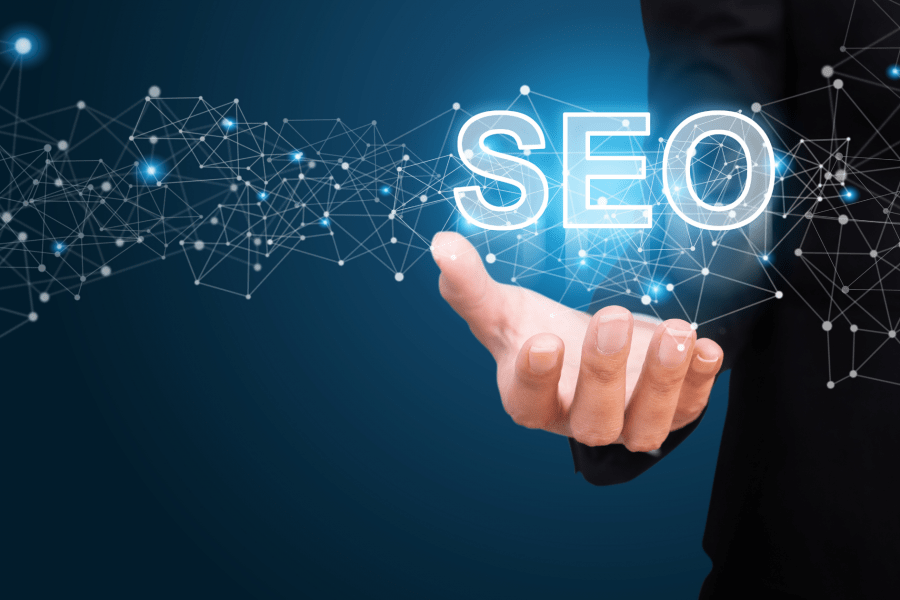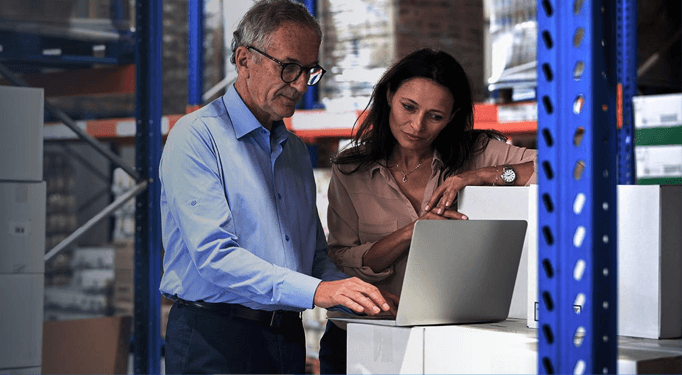You may have wondered: does site speed impact SEO? The answer is, absolutely. Site speed, or the average amount of time it takes for the pages of your site to display, is a critical aspect of your website, where the faster the load, the better the benefits. You may have worked tirelessly to ensure that you have high-quality, keyword-infused content on each page, beautiful design, and easy-to-use navigation. However, that won’t matter if you lose a visitor because your site is taking too long to load.
Impatience runs rampant these days, and you’re lucky if you can snag someone’s attention for more than a few seconds. According to Google, “the probability of bounce increases 32% as page load time goes from 1 second to 3 seconds.”
You may not think a few seconds make a difference, but they definitely matter when it comes to capturing customers. Keep reading to learn how site speed impacts SEO and why site speed matters and how it can either make or break your SEO strategy.
Why Site Speed Matters
Your website loading time impacts company sales, search engine ranking, and customer loyalty. Think back on a time when you were searching for a product or service on Google. You typed in your search query, and you clicked the first result that popped up. But it ended up taking a whopping 20 seconds for the site to load. What did you do? Did you leave or wait it out? You most likely left and found another site that offered the same products or services. Now that you’ve put yourself in the customer’s shoes, do you see the importance of site speed optimisation? The reality of the matter is you probably won’t get a second opportunity to make a first impression, and that visitor you lost might even go and tell their friends not to visit your site either. Overall, your conversions suffer with every added second of load time, which is why it’s important to understand how site speed impacts SEO.
Users aren’t the only ones irritated by slow-loading websites; search engines hate them too. Your site’s speed affects how fast the Google bots can crawl your pages and how many pages they can cover. If they only have the chance to index a few of your pages, then you’ll probably rank lower. When you rank lower, fewer people will visit. And when there’s less traffic, you won’t get as many conversions. It’s a vicious cycle.
Benefits of Site Speed Optimisation
Luckily, there are many ways you can optimize your site speed and keep customers and search engines happy. Remember that search engines and users want both a quality experience and fast load time. So, don’t focus on one without the other! The goal is to achieve between 0-4 seconds.
Here are a few major benefits to having a faster website:
- Google and Bing Use Site Speed as a Ranking SignalGoogle, the search engine giant we all know and love, and Bing, its counterpart, have consistently reiterated the fact that having a faster site will improve your search engine ranking. Because these are highly considered ranking factors, you can bet that having a slow site will lower your ranking. Google has even made site loading speed part of its Core Web Vitals report so you can comprehend how site speed impacts SEO.
- Faster Sites Mean Faster CrawlingWell-organized, optimized, and clean websites with a solid hosting plan in place tend to be faster. Because of this, Google can easily crawl and index your site to hopefully improve your ranking in search results. When it comes to understanding how site speed impacts SEO, it’s all about making things easier for the bots. They usually return the favour.
- Increases Conversion Rates and Decreases Bounce RatesIt’s always wise to aim to be the best in your industry or niche. Look at what your competition is doing and strive to be even faster. Quick-loading sites will keep people on your site reading your well-crafted content and will bring them back for more, potentially converting them into customers and reducing bounce rates.
- Improves User ExperienceUser experience is key to a fantastic site that attracts customers. In the past, you’ve most likely witnessed an awful website that’s slow and hard to navigate. How did you feel while you were on it? Probably pretty terrible, right? That’s exactly how other users feel when they head to a site with poor user experience. A faster website will make people happy, and when people are happy, they usually return to the brands they love. And eventually, Google will take notice that users are coming to your site, and may even rank you higher.
Reasons Why Your Website Is Loading Slowly
There are plenty of culprits that can be to blame when you’re dealing with a slow-loading page or multiple pages. Although you can’t control if someone’s Internet connection is terrible, there are a variety of other elements you have the power to manage in terms of how site speed impacts SEO. Are you suffering from slow site speed? Below are a few factors that might be causing your frustration:
Web Hosting
Your web host allows your website to be seen online by storing it on their own servers. Sometimes companies think they’re saving money on a cheaper hosting plan, but this can impact your load time immensely (especially as your traffic keeps growing). Picking the right plan and hosting company for your needs is the best way to ensure your website loads quickly and minimize the loss of customers.
Large Images, Videos, and Files
If your service pages are filled to the brim with images and files, or your homepage features a giant video file, chances are, you’re going to run into some site loading issues, which is a clear indication of how site speed impacts SEO. The greater the file size and quantity of files, the longer the load time will be. It’s essential to optimize all of your images and compress them properly to make sure your site speed doesn’t suffer the consequences.
Browsers
You might find that a particular website loads faster on a different browser. Maybe it takes three seconds on Google Chrome, ten seconds on Firefox, and eight seconds on Microsoft Edge. These browsers can vary in their compatibility with new codes on your site, as they need frequent updates that can slow down page loading time.
Cache Clutter
It’s also possible that the computer is storing too much information from the websites that were recently visited. Each time you visit a site, the browser automatically (by default) copies and stores data. The purpose is to speed up the loading process when you return to the site; however, sometimes it can backfire and get clogged with too much information. This cache clutter can cause a slower site speed, which demonstrates how site speed can impact SEO. Thankfully, a little cache optimisation can help speed things up.
Plugins
Plugins are wonderful tools that add value to websites. However, they can also decrease your site speed. Avoid using too many, as this will overload your server and lead to frustrating wait times for visitors. Try to get back to basics and only focus on the plugins you really need for your business.
Too Many Redirects
If you have an older site, you’ve probably changed things around and deleted certain pages. This may have caused you to implement a number of redirects (the linking of an old URL to a new page). When you have too many of these redirects, it can bog down your server.
Not Updating Your Content Management System
Another reason how site speed impacts SEO could be because you’ve neglected to update your content management system (CMS). Whether you’re using WordPress, Joomla, Google Sites, or some other system, it’s important to make the updates frequently to prevent slow site performance.
How to Conduct a Website Speed Test
Thankfully, you can test your page load speed using various online tools, such as Sitechecker, Google’s PageSpeed Insights tool, GTmetrix, and many others to understand how site speed impacts SEO. All you’ll have to do is simply enter the URL of the page you want to test. These tools are designed to find exactly what’s slowing your pages down and offer helpful tips on how you can make improvements.
Fast, User-Friendly Websites from Higher Ranking
Are you struggling with a slow-loading site? Do you want to know how site speed impacts SEO? Do you need help optimizing your images and files, cleaning up your site structure, and finding the right web host for you? It can be overwhelming trying to handle all of these tasks to keep your site fast and user/search-engine-friendly. After all, you have enough to deal with running the ins and outs of your business.
Here at Higher Ranking, we understand how site speed impacts SEO and why site speed matters to your business. The more time it takes for your site to load, the higher the risk of losing valuable visitors. We know firsthand that’s something every company wants to avoid at all costs, as it can decrease sales over time if the issue is not resolved.
Our talented web and SEO teams will ensure that your site not only looks good, but runs smoothly with lightning-fast loading times. We offer customized web design and development services and search engine optimisation to drive traffic and turn yours leads into loyal customers. With our efficient SEO techniques, technical web savvy, and dedication to your success, the specialists at Higher Ranking will partner with you on your journey toward a faster site and better business.
Are you ready to take your company higher? Businesses worldwide are investing in the necessary tools and technology to optimize their website and achieve their goals. Set yourself apart from the competition with a fast, well-designed, and optimized website from Higher Ranking. Contact us today by calling 03-9399-1469 or send us a message on our website. We can’t wait to help you grow!










